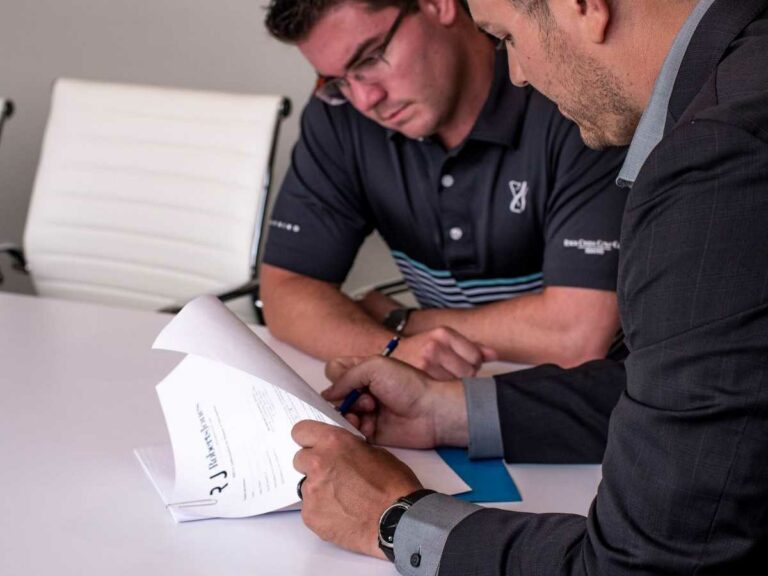Auto Accidents Get Complicated When Partial Fault Is At Play.
If you are unfortunate enough to be involved in an auto accident, you will no doubt think about how you will be compensated for your financial losses and injuries. But what if you were partially at fault for the mishap? This is why it is important to carry auto insurance.
Washington State Law stipulates that you, as well as other drivers, must be held financially responsible for any accidents, injuries, and fatalities you cause. Nonetheless, the situation regarding compensation can turn complicated when you feel you were partially at fault for the accident.
Typically, when it comes to determining liability for an accident, the courts and insurance companies will rate it on a percentage-based scale. Keep in mind, however, that if you share half or more of the responsibility for the crash, you are not necessarily eligible for compensation from the other party or their insurance company.
In short, when the fault is not clear or two or more parties were at fault, the fault will likely be divided between the negligent parties.
How Partial Fault is Determined in an Auto Accident
It comes down to the insurance companies that insured the drivers who were involved in the accident to decide fault. Each party is assigned a relative percentage of fault, and this is based on the driver’s actions. A claims adjuster in charge of the case determines the degree of fault by evaluating the circumstances surrounding the incident. Claims adjusters will normally defer to state laws to determine which driver acted negligently.
In some situations, the insurance company will pay the respective portion of the insured driver’s share. So, for instance, if Insurance Company A’s driver was found 60 percent at fault and Insurance Company B’s driver was 40 percent at fault, Insurance Company A might pay 60 percent of the settlement, while Insurance Company B pays the remaining
40 percent. There are cases whereby the insurance company that insured the driver who was found most at fault pays the whole claim.
Negligence Laws
Insurance adjusters are required to apply the state’s measure of damages based on how it determines negligence. There is the option for the state to use contributory negligence, comparative negligence, or a modified approach in determining to what degree each party was culpable for the accident.
Contributory Negligence
Historically, if two people were involved in a collision and the victim was even partly at fault, that person was barred from recovery. The relevant legal concept for this is referred to as “pure contributory negligence.” Some states adhere to this legal theory, however, the vast majority of states use a proportional form of establishing fault.
Comparative Negligence
This type of negligence allows an injured party to recover the portion of damages that this person sustained that cannot be attributed to him. In states that adopt pure comparative fault, a victim is able to recover his damages, however, they are decreased by the percentage that represents his own fault.
For the majority of states, it is required that the other person be at least 51 percent at fault or more before the victim can recover. This measure of damages is known as “proportional comparative fault.”
Is Washington a No-Fault State?
No, Washington is not a no-fault state. Washington is a tort state, meaning the at-fault driver in a car accident uses their liability insurance to pay for other people’s medical bills and repair expenses, up to the limits of the policy. Washington State follows a traditional “fault” system when it comes to financial responsibility for losses stemming from a car accident: injuries, lost income, vehicle damage, and so on. Drivers in Washington State have the option to purchase personal injury protection (PIP) insurance to pay for their own injuries following an accident. However, the state does not restrict their ability to sue an at-fault driver for compensation.
Personal Injury Protection-Auto Insurance
There are some insurance policies that offer personal injury protection that assists in paying for a driver’s property damage, personal injury, and medical expenses without regard to fault. If someone has this type of coverage and is not entitled to compensation from the other party because of the state laws having to do with negligence and the measure of damages, the driver’s insurance policy pays for these injuries.
What to Do After An Auto Accident Where You Could be Partially At Fault?
When a car accident occurs, you have just your own unique perspective of the incident. It’s not possible to have the same vantage point as other drivers or nearby witnesses.
Keeping these varied viewpoints of the accident in mind, even if you think you are partially at fault, you may be found not at fault based on other people’s opinions of the accident. That is why it is important to not disclose any information to witnesses, emergency personnel, or others at the scene about who you think is responsible for the accident.
Roberts Jones Law Is Here To Serve Your Legal Needs During Personal Injury Cases
If you have been involved in an accident and there are multiple parties involved, you need legal services from an experienced personal injury attorney from Roberts Jones Law. Our attorneys at Roberts Jones Law have the expertise and experience necessary to effectively handle multiple insurance companies simultaneously and to build a case designed to protect your rights and interests.
At Roberts Jones Law we will provide you with the guidance, care, and support needed to secure the compensation you deserve. If you have been injured as a result of someone’s carelessness, breach of duty of care, or deliberate act, you have rights under the law to seek compensation for your damages.
Trust the attorneys at Roberts Jones Law when you want legal services catered to your individual needs. Get in contact with us to schedule a FREE consultation meeting to discuss your case.
This article is for informational purposes only and does not contain legal advice.







